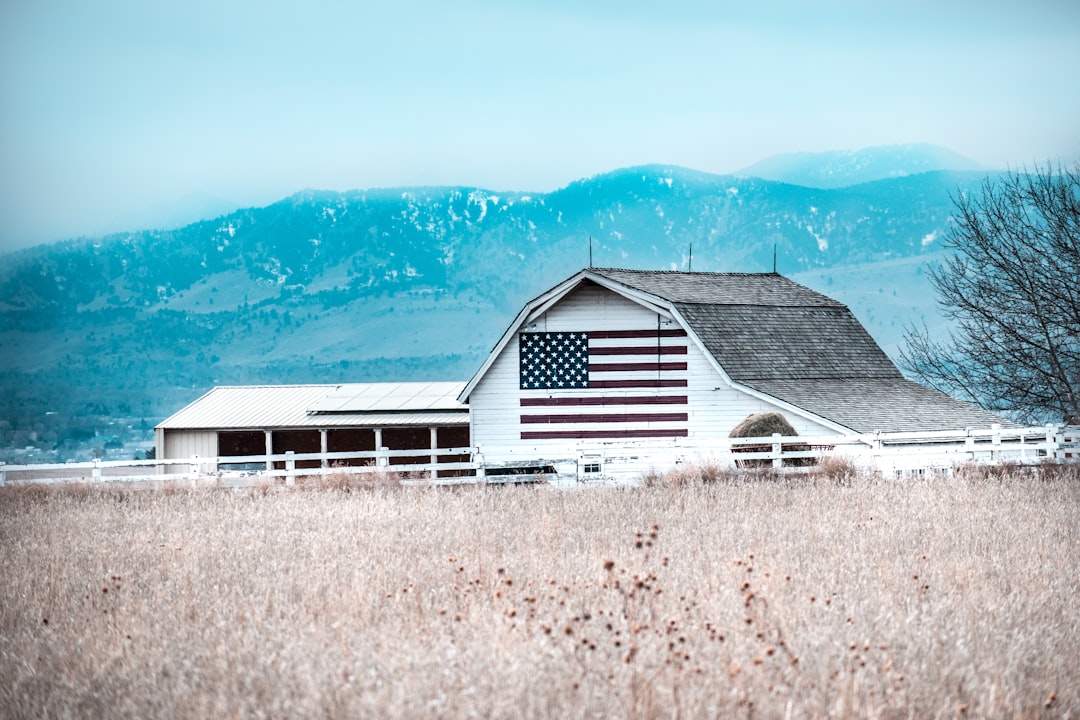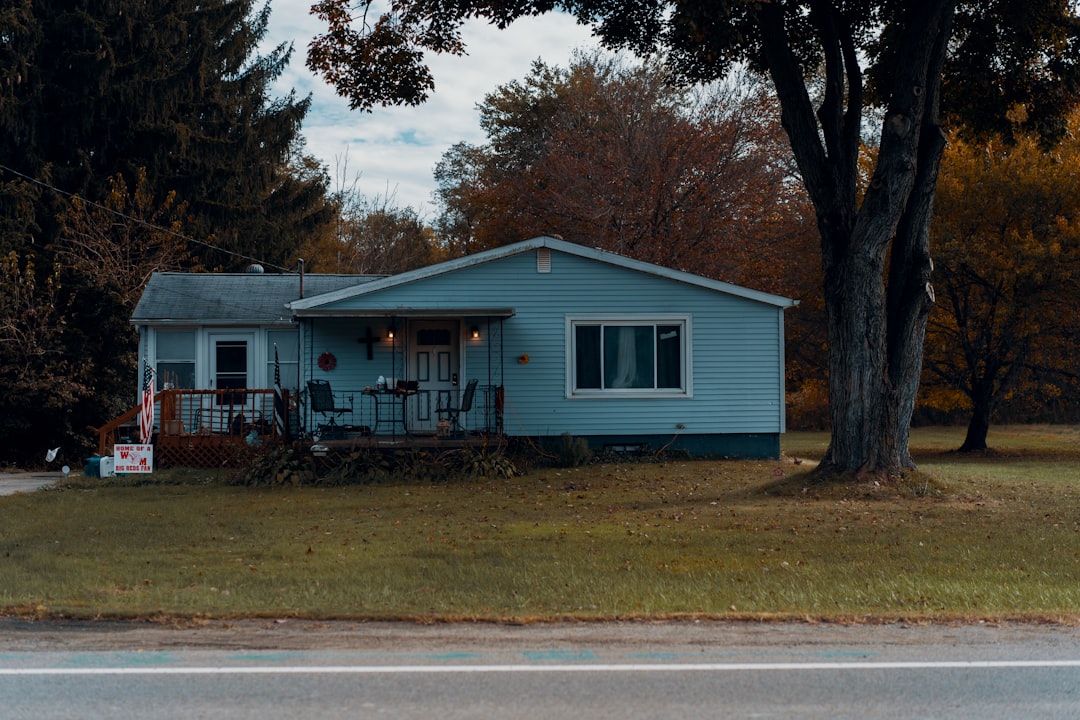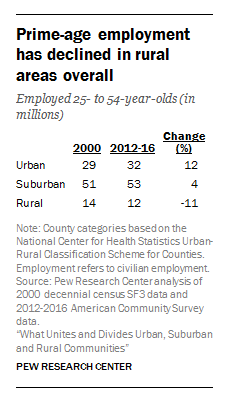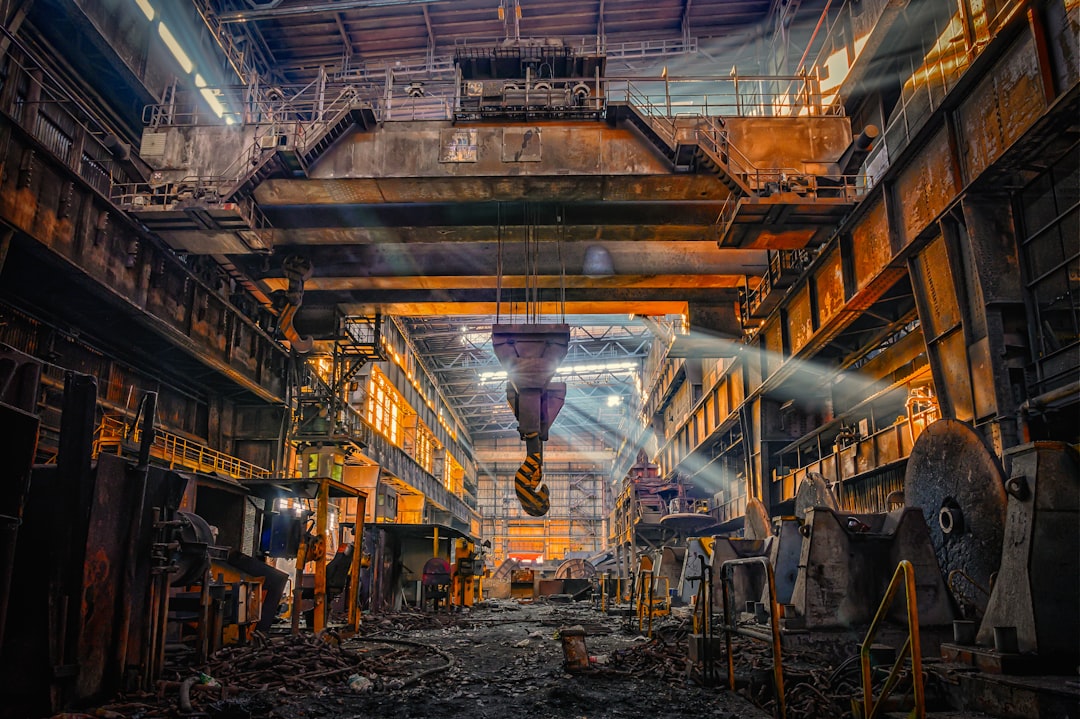How to be Rural in Tech
Why don't I ever meet rural people in tech? Contrarian strategies for America's small towns. Plus, the romance of stagnation.

The following series is based on a talk I gave in January 2023 at Innovation Collective, an entrepreneur’s group in Coeur D’Alene, Idaho.
This is part 1.
All the ideas in this series can get you uninvited from dinner parties. So tell me where I’m wrong in the comments.
—
Where are all the rural people in tech?
To be rural in tech is to be an outsider. The further you ascend, the fewer rural people you meet. “Where are you from? I hear the hint of an accent,” some guy in a Patagonia vest will ask you.
A rural past pursues you. And so does, I think, a certain sadness about the life you left behind.
For all the howdy-neighbor and home-cooked meals, growing up in a small town can feel like living with no future. The jobs aren’t there. You may have watched your parents struggle. You don’t know what skills to learn or how to learn them (and no one around you knows either).
So you leave.
And you grow up and get used to hearing of your friends back home: listless, chronically under-employed, playing video games in Grandma’s basement, or lost to suicide-by-opioid before their 30th.
I think this lack of rural people in tech is more than an anecdote. It’s a window into the future of America’s small towns.
—
Rural People Don’t Do Prestige
Here’s a revealing graph from my friend John Chisholm, an MIT alum and brilliant tech entrepreneur who also grew up in a small town:
Mostly, rural kids don’t get into colleges like MIT. I’d bet if we looked at YCombinator founders or other prestigious groups in tech, we’d also mostly see people from cities and suburbs.
Could we get more rural kids into fancy colleges? Sure. But does anyone believe that we’ll move Tennessee or West Virginia to the top right of this curve with more mentoring or something?
Are rural kids like me just dumber? I doubt it — at least not to a degree that should lead to such stark outcomes. Besides, past eras of American technology are rife with entrepreneurs and innovators from small towns!
Nearly all of the Apollo 11 astronauts were from small towns. Robert Noyce, the big brain behind Intel, grew up in Grinnell, Iowa. Henry Singleton of Teledyne was from Haslet, Texas. Even Marc Andreessen grew up in the middle of nowhere in Wisconsin.
Clearly, rural genius exists.
But the Ivy-League-to-Silicon-Valley pipeline is more competitive now than in Noyce’s day. There’s a huge focus on prestige in the Ivy League and in today’s world of tech, especially in Big Tech Corps and venture-backed startups.
But rural kids don’t do prestige. They don’t take 15 AP classes and 37 extracurricular activities. Their parents can’t afford a flock of tutors. Rural kids work on a farm or at the cash register in Wendy’s or clean toilets and other odd jobs, as I did. They don’t open non-profits to impress the admissions office.
Rural kids don’t even bother to take the SAT:

Rural kids just aren’t on the childhood prestige treadmill of their urban rivals. They never will be. It’s a different culture. And it takes too much parenting and too much money for normal rural parents, who often barely made ends meet.
So rural talent gets lost. With the industrial jobs of the 20th century gone from small towns, there’s no onramp to the future. The capabilities of rural people aren’t matched to training and opportunities in their environment. The lifeblood of any town — people doing stuff — drains away.
What’s a small town to do?
—

Stagnation Is Not a Strategy
In this series I’ll argue that small towns should radically change their policies and their self-image if they hope to participate in the future.
Small town strategy must be different than that of suburbs and cities.
Why? Small towns don’t have the human capital of the typical suburb or city. This fact, more than pretty trees or Main Streets or “small town values,” must lead small town strategy. Urbanism and human capital formation are linked. And so they must be for small towns to thrive.
I’ll present three ideas in subsequent newsletters:
Small Town Urbanism: Scale Main Street So Smart People Move There
Small Town Education: Forget Well-Rounded Students and Train for Skills
Small Town Culture: Find and Cultivate Rural Genius
Taken together, these ideas form an optimistic strategy for a small town.
—
What of small towns today?
Many of America’s small towns pursue a strategy I call Romantic Stagnation.
Romantic Stagnation loves the past.
It believes that growth is bad, change is bad, cosmopolitan views are bad, outsiders should not be trusted or welcomed, and that small town life — the sort of life provided by a classic American Main Street — cannot be scaled and so must be preserved through restrictions.
This “strategy” expresses itself in a lame NIMBYism that’s particularly self-defeating for small towns. Big legacy cities have inertia and history that attract people despite everyone’s attempts to block everything.
Small towns don’t.
Romantic Stagnation would rather wax poetic about the Glory Days of a decrepit 1950’s tire factory than tear it down and build something new. Romantic Stagnation hates “transplants” and “West Coasters.” Romantic Stagnation attacks and ostracizes anyone who stands out from the crowd.
Romantic Stagnation tells small town kids to have “sensible” ambitions, while rich suburban kids are told that it’s their birthright to run everything on Earth. Romantic Stagnation believes that if we just hold on to what is as tight as we can, then decaying towns will somehow become great places to live and grow.
Ironically, the Romantic Stagnationists of America’s small towns — most of whom likely lean politically conservative — behave like Southern European socialists in their attitudes toward where they live. Visit Portugal, Italy, or Spain, and you’ll see the European version of Romantic Stagnation.
In Southern Europe, everyone’s obsessed over some artisanal cheese from 600 years ago. What makes this cheese so unique, you ask? A special government seal that monopolizes a word like “Champagne” or “Port” to a particular valley. There’s nothing wrong with enjoying these treats. But the youth unemployment rates in these areas show the foolishness of trying to build the future on an obsession with the past.
Romantic Stagnation isn’t a strategy. It’s a failure of imagination.
There’s no reason for rural people to fall out of the labor force and die of ennui. Small town life could be awesome. But small towns must be willing to take extreme measures.
The first step is to scale Main Street, so smart people from outside have a place to live.
—
Thanks for reading and don’t forget: Startups should build cities!






An obvious first step to stimulate "rural genius" is to bring in reliable Gigabit Internet to these places. Comparing the Chisholm graph showing low enrollment rates to this county-by-county map of broadband speed (https://www.theverge.com/22418074/broadband-gap-america-map-county-microsoft-data) shows a direct correlation between Internet speed and "genius." The difference between 10-15mbps and 1Gb is significant and usually ignored ("well at least they have Internet!"). But before the Internet, people in rural areas--like the Apollo 11 team and Marc Andreesen--had more or less the same access to the same books and media as others in big cities. With the Internet, however, a person with 1Gb speed can access more knowledge, download media, and collaborate with others, all of which is nearly impossible with a <25 mbps Internet speed. Slower download speeds = slower learning.
the "rural communities are dying' talking point is actually misleading. when rural towns or communities grow, after a while they are reassigned to "urban" by the census takers whether or not they lose their rural character or not. that is why statistics show that rural america is dying-for instance, my hometown of sumter, south carolina, a cotton and soybean farming community whose richest residents are farmers-is considered urban on the census. not exactly fair i'd say. and i don't think its germane to say that the lack of rural workers in tech is down to the social beliefs of the places they come from. america is just a huge place, and the tech industry is located in like three places. why spend money and resources recruiting rural talent that's a thousand miles away when you could hire the son of a programmer who lives in san francisco for far less hassle? combine that with a not so warm attitude that tech people stereotypically have towards southerners and midwesterners, and there is a bit of a chilling effect that goes on.